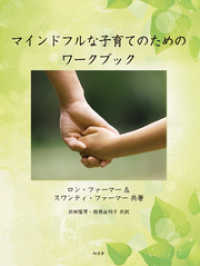Full Description
Complementing the complete text of Wharton's landmark novel, this extensive volume also includes a wealth of contextual material. "Background Readings" explores the culture of 1870s New York, as depicted in the novel, as well as views on marriage and divorce at that time. In "Other Writings by Edith Wharton," the author discusses fiction writing, old New York, women, and her winning of the Pulitzer Prize. The "Critical Readings" section features essays on the novel from a wide variety of perspectives.
Contents
Editor's Introduction by Carol J. SingleyA Note on the TextI. The Age of InnocenceII. Background ReadingsQuestions of CultureThomas Bender, from The Metropolitan Gentry: Culture against Politics"George Sanyayana, from "The Genteel Tradition in American Philosophy"Walt Whitman, from "Democratic Vistas"Calvin Tomkins, from "Merchants and Masterpieces: The Story of the Metropolitan Museum of Art"Ida Van Gastel, "The Location and Decoration of Houses in The Age of Innocence"Marriage and DivorceSteven Mintz and Susan Kellogg, from Domestic RevolutionsJ. Foote Bingham, from "For the Wedding Night"Travel and SportDonald Ross and James J. Schramer, from the Introduction to American Travel Writers, 1850-1915Henry James, from "Americans Abroad"Henry James, from "Newport"William J. Baker, from "The Lawn Set"III. Other Writings by Edith WhartonWriting The Age of InnocenceThe Ways of Old New YorkThe Childishness of American Women"The Valley of Childish Things"Winning the Pulitizer PrizeIV. Critical ReadingsAlan Price, from "The Composition of Edith Wharton's The Age of Innocence"Elizabeth Ammons, from "Cool Diana and the Blood-Red Muse: Edith Wharton on Innocence and Art"Judith P. Saunders, from "Becoming the Mask: Edith Wharton's Ingenues"Sandra M. Gilbert and Susan Gubar, from "Angel of Devastation: Edith Wharton on the Arts of the Enslaved"Katherine Joslin, from "The Age of Innocence and the Bohemian Peril"James W. Tuttleton, from "Edith Wharton: The Archeological Motive"Nancy Bentley, from "'Hunting for the Real': Wharton and the Science of Manners"Linda W. Wagner, from "A Note on Wharton's Use of Faust"Gary H. Lindberg, from "The Mind in Chains: Public Plots and Personal Fables"Donald Pizer, from "American Naturalism in Its 'Perfected' State: The Age of Innocence and An American TragedyIan Christie, from "The Scorsese Interview: On Filming The Age of Innocence"Gore Vidal, "Of Writers and Class: In Praise of Edith Wharton""








